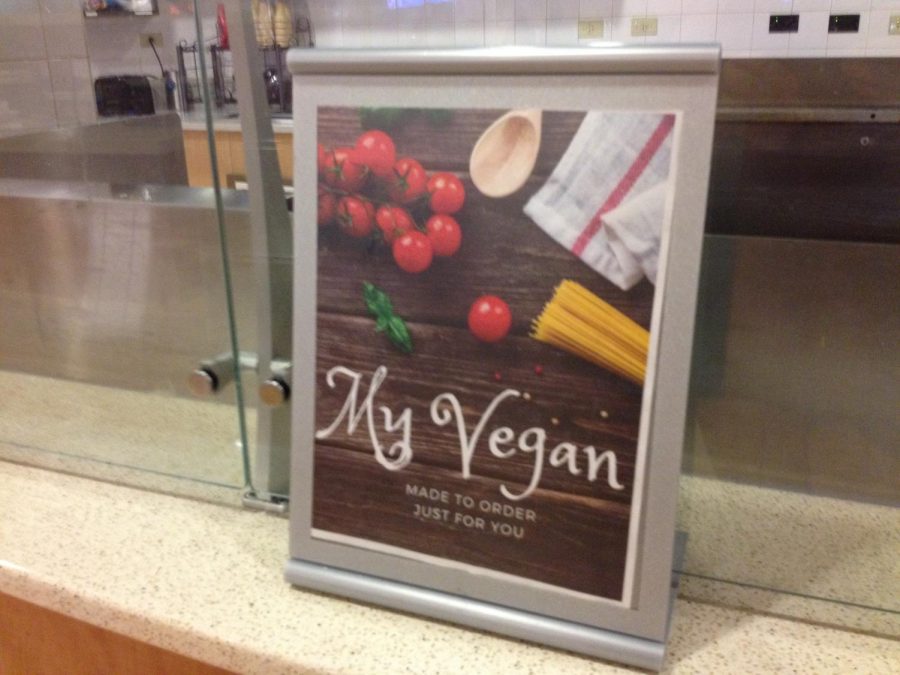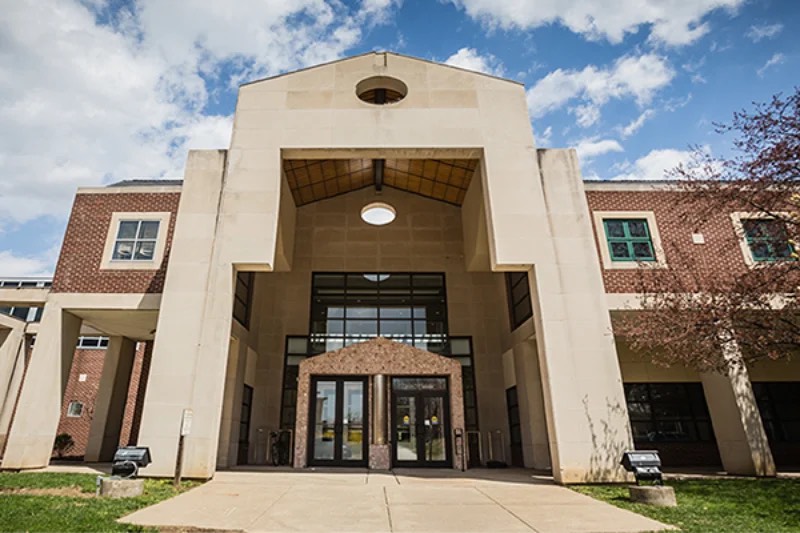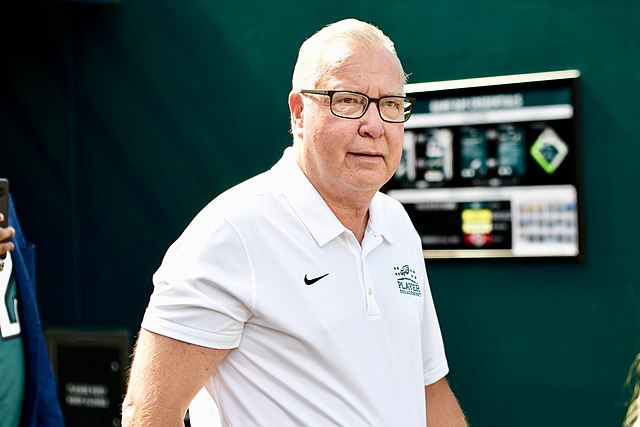For some students, finding time with a busy class schedule to eat at the dining hall may be difficult, but for others, it’s more complicated.
Junior Communication Arts Major Hannah Weaver has Celiac disease and diabetes. She cannot come into contact with gluten and cannot tolerate any foods that have become cross–contaminated with gluten or she is sick for weeks.
“I have to worry about the person who made the food changing their gloves or wiping off the counter or using different utensils,” she said.
Since Weaver transferred to Marywood in the fall 2017 semester, she has met with various departments on campus including disability services, dining services and student health services to discuss her dietary needs.
According to Diane Webber, associate director for disability services, other students with dietary restrictions follow this same process.
Webber said food allergies fall into the disabling conditions category under the Americans with Disabilities Act. These conditions include food sensitivities, Celiac disease and Crohn’s disease, which all impact a student’s ability to digest certain foods.
When a student with dietary restrictions arrives at Marywood, Webber verifies the food allergies to see if the student is eligible for accommodations before connecting them with dining services.
“We would then discuss what the student’s specific needs are,” she said.
Webber said it’s a important to inform students where foods they can eat are located on campus or how they can connect with chefs to order customized food if necessary.
“They can try to be as efficient about it and as normal as everybody else,” Webber said. “A lot of it is about that open line of communication and the partnership.”
After connecting students with dining services, Webber allows the department to work with the students, but will help with additional facilitation if needed.
Director of Dining Services Mark Devlin works with students and ensures supervisors and managers, who all have culinary training, can prepare food for those with special dietary needs.
“Sometimes when there’s nothing on the menu, at that point we will cook special meals for those students so they have something fresh that meets their dietary necessities,” Devlin said.
He explained that students call back to the kitchen and can ask chefs to specifically make them a meal. Additionally, students can show up at the dining hall and ask for customized items.
“Student life is very busy so sometimes you don’t know when you’re going to have a half hour to come for dinner,” he said. “We always try to make things work for the student’s time frame.”
A texting system that was previously in place is not the best option for students to contact chefs to order customized food, said Devlin. He encourages students to call and speak directly with a supervisor who will be doing the cooking and is properly trained to prepare food for those with dietary needs.
Another option for students who are vegan or vegetarian is a new vegan bar located in Nazareth Dining Hall, which provides vegans and vegetarians with a wider variety of food choices. Devlin said the bar opening was the first step to see how it would be received on campus.
Weaver said she has followed this process and called to order specialty-made food, spoke with chefs and supervisors at the dining hall about ingredients and spoke with Koran Watson, a registered dietician nutritionist.
However, since transferring last fall, Weaver said she has become sick five times from eating on campus.
Watson offered to have chefs pre-prepare Weaver’s food and keep it in a food warmer for when she comes to eat, but Weaver said this wasn’t ideal when she wasn’t able to choose what to eat each day and the food was not to her liking.
Weaver is highly sensitive to gluten cross-contamination and said she believes this is what caused her to become sick.
Devlin said dining services tries to ensure that they do not cross-contaminate food but it “always goes back to the student.”
“You have to be comfortable to do it [eat the food]. It has to be your responsibility,” he said.
He explained how there’s one main kitchen and one main ventilation system in the dining hall where chefs prepare the food.
“We try to take everything out that we can physically control,” he said.
Weaver has decided to no longer eat regularly at Nazareth Dining Hall after the fall semester and now gets her food from the Learning Commons Café where she has formed relationships with the employees that work there and trusts they won’t contaminate her food.
“I need to know that the people who are making my food are trained and know what they’re doing,” she said.
Weaver said she buys groceries and frozen food to heat in a microwave in her dorm for many of her meals.
“I’ll often order take out from places which is kind of interesting that it’s safer for me to order takeout from local restaurants than it is for me to eat at the cafeteria at Marywood,” she said.
She said dining services continues to be willing to work with her to find a solution. She has tried the new vegan station a few times and did not get sick.
Nutrition and Dietetics Major Niorka Cintron, who is a vegetarian, said she likes the vegan station and said it was her “go-to” place to find meals.
Cintron, who lives on campus, said it was specifically difficult being a vegetarian during the weekends because Chartwells provided limited options on campus and in the dining hall.
Devlin said he thinks dining services does well accommodating students with special dietary needs, but said there’s always room for more communication.
“This day and age there’s becoming more and more dietary restrictions and more and more allergens out there so we need to make sure we grow with the times,” he said.
Contact the writer: [email protected].edu
Twitter: @RLookerTWW
















